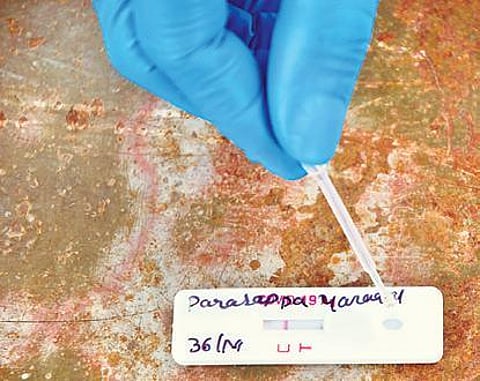

BENGALURU: A recent study published in Nature found that the immune systems of people who recover from Covid-19 may evolve to fight different strains of SARS-CoV-2. Experts in Karnataka explain that it could occur as the memory B cells of the immune system remember the nature of the virus and are likely to modify their response if they encounter a variant of SARS-CoV-2 that is different from what they had already contracted.
The paper, titled Evolution of antibody immunity to SARS-CoV-2 and published on January 18, noted that antibodies are produced by immune cells that keep evolving due to continued exposure to remnants of the virus hidden in the gut tissue. The scientists involved in the US study said they suspect that when recovered patients encounter the virus again, the response would be both faster and more effective, preventing reinfection and may block even mutant forms of the virus, such as the South African variant.
In addition to antibody-mediated immunity, the body also has cell-mediated immunity, said Dr Ranjit Mohan, consultant for internal medicine and infectious diseases at Manipal Hospitals. “It is the memory B cells of the body’s immune system that are responsible for the development of a robust and durable immune response to viral infections or vaccination. Such primed memory B cell populations may persist for years, or even decades within the lymphoid organs of the body, providing a robust and enduring immunity upon re-exposure. Since viruses have evolved to mutate frequently, human memory B cells have also evolved to modify and adapt to counter mutant strains of viruses,” said Dr Mohan.
Dr Ravindra M Mehta, senior consultant and head of pulmonology and interventional pulmonology at Apollo Hospitals Jayanagar, said, “Some level of protection will remain with the person (after exposure), as far as virology knowledge is concerned, unlike (antibody response to) bacterial (infection), which is specific to a certain mutation. So we expect that the immune response should be okay even to the mutant strain, this is certainly only an expectation, it cannot be validated until we go through the whole process.”
Antibodies against SARS-CoV-2 wane over time, but B cells do retain the ability to target spike protein of the virus (the spike proteins on the surface of SARS-CoV-2 attack and gain entry to human cells), said Dr Swati Rajagopal, consultant for infectious diseases and travel medicine at Aster CMI Hospital. “The immune response in humans is different to serum-based neutralization response.
There is still immunity with current vaccines - good level of protection. It is possible that the human immune system can create memory B cells that recognize the Covid-19 virus and immediately release antibodies on encountering the virus for a second time. This is based on findings that the virus could multiply in several tissues of the body including upper respiratory tract, the gastrointestinal tract and could help in producing memory B cells,” she said.